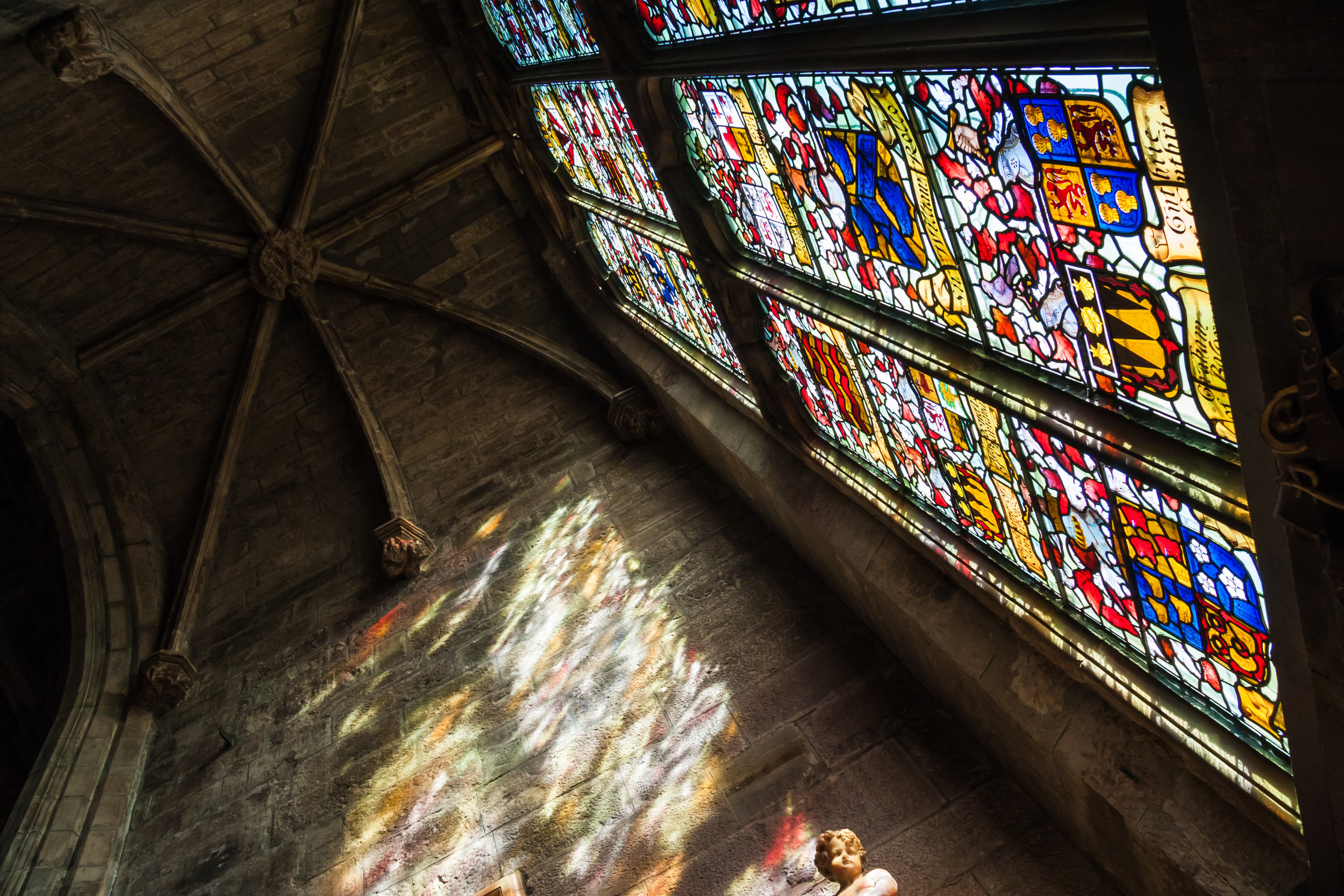Seven Last Words from the Cross
Author: Rory Johnston, Blogger in Residence
Last week was Holy Week, the most important week in the Christian calendar. Being the commemoration of the death and self-sacrifice of Jesus Christ, it encapsulates the main belief of the Christian faith – that Jesus died for the sins of the world – and therefore means a lot to all Christians around the world.
The four main days of Holy Week - Maundy Thursday, Good Friday, Holy Saturday and Easter Sunday – all represent different stages of the Passion story: Thursday is the Last Supper and Judas’ betrayal of Jesus; Friday is Jesus’ arrest and crucifixion; Saturday is his time in Hell; and Sunday is the Resurrection.
As a composer of sacred works there is a lot of inspiration to take from music written for this period of the Christian year. The liturgical texts of the week have inspired some of the most beautiful and impassioned pieces within the Christian musical canon, including both Gesualdo and Victoria’s Tenebrae Responsories, Tallis and White’s Lamentations of Jeremiah, and Bach’s St John Passion. Seeing as it was Holy Week last week, I thought I would talk about my favourite of all written for the week: Sir James Macmillan’s Seven Last Words from the Cross for choir and string orchestra.
Also set to music by Haydn, the Seven Last Words from the Cross lays out the last seven expressions made by Jesus before he died nailed to the Cross, which are noted as:
‘Father, forgive them, for they know not what they do’
‘Verily, I say unto thee, today thou shalt be with me in Paradise’
‘Woman behold your Son… behold your Mother’
‘My God, my God, why hast thou forsaken me’
‘I thirst’
‘It is finished’
‘Father, into Thy hands I commend my spirit’
Macmillan sets these expressions (and some extra text in a few of the movements) with complete mastery, unafraid to be both tender and aggressive, and sometimes even both at once. Each movement is a lesson in precision and clarity, with the main idea of the music being clear, but not predictable – it truly is a modern masterpiece.
There are two moments of the piece that stand out to me as masterclasses in composition. The first movement is a lesson in pacing and the unravelling of a musical idea. As the music begins we are introduced to a gentle and slow string motif that ends up underpinning the entire movement, with the calm bass note oscillating back and forth between E and A#. The voice parts gradually get more and more intense as the piece progresses, with declamatory cries from the tenors and basses of ‘Rex’ and ‘Israel’, as the 1st and 2nd violins fight with each other in a canonic dance of death. As the movement draws to a close, the choir gradually take on the strings’ original motif one by one, and we are left with the sopranos reciting a selection of text from the Responsaries for Good Friday. The fact that the movement never feels like it is dragging or dull - even though it is 6 minutes long with essentially the same harmonic underpinning throughout - shows what is possible when you take an idea and completely explore the possibilities of any complimentary and contrasting ideas.
The second part of the piece that stands out to me is the opening and transition of movement six ‘It is finished’. The start of this movement is very aggressive, with stabbing string chords at a very slow tempo. The choir only come in at bar 10, humming at ppp, and the way that Macmillan get to this point shows absolute control over the music and its direction. As the string chords steadily drive themselves onwards, they start to slowly unravel, with the inner parts either increasing in duration or becoming slowly offset with the original pulse. It takes 6 bars for this process to happen, but by the end the once aggressive strings are now gentle and legato, with the voices joining them in the final moments so that is seems as though the strings have become the voices.
If you have never listened to it before, I implore you to go and spend 45 minutes listening to it now. You can find it on Spotify here and if you register for an account on Boosey & Hawkes website you can view the whole score online for free.
Written by Rory Johnston



